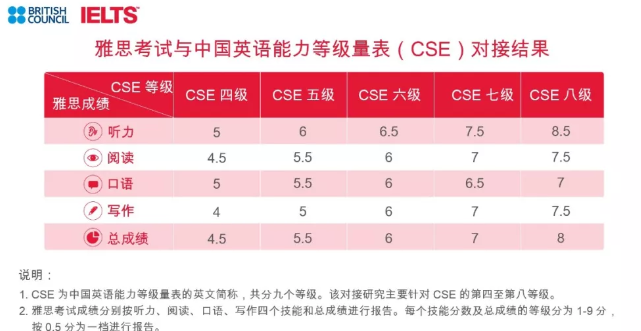2008年职称英语考试阅读判断试题训练(十五)
|
15.A Dog’s Dilemma 狗的两难境地 Finding a babysitter while you go out to work is, for example, an inconvenience. For the African wild dog, one of the continent’s most endangered carnivores, it’s a matter of life and death. New research shows that once packs fall below a certain size, there are not enough animals to both hunt food and stay at home protecting the young. The African wild dog has declined drastically over the past century. Habitual loss, persecution and unexplained outbreaks of disease have all been blamed. Only 3,000 to 5,000 animals remain, and the species is expected to go extinct within decades if the trend continues. Other large carnivores such as the spotted hyena face similar pressures, yet are not declining. Now Franck Courchamp of Cambridge University has found a reason why. The dog’s weakness lies in its social organisation. Within each pack of up to 20 adults and pups, only the dominant male and female breed. The remaining animals help raise the pups, cooperating to hunt prey and defend the kill from other carnivores. Because pups can’t keep up on a hunt, large packs leave an adult behind to protect them from predators, which include lions and hyenas. But leaving a babysitter also carries costs. A smaller hunting party is less able to tackle large prey and to defend the kill. There is also one less stomach in which to carry food back to the den, and one more mouth to feed when they get there. Courchamp investigated this awkward trade-off by modelling how the costs of a babysitter change with decreasing pack size. This showed that packs of more than five adults should be able to feed all the pups and still spare a babysitter. But with smaller packs, either the hunting or the babysitting suffers, or the animals have to compensate by increasing the number of hunting excursions - which itself carries a cost to the pack. Field observations in Zimbabwe supported the model. Packs of five animals or fewer left pups unguarded more frequently than larger packs did. There was also evidence that when they did leave a babysitter, they were forced to hunt more often. A pack which drops below a critical size becomes caught in a vicious circle, says Courchamp, who is now at Paris –Sud University. “Poor reproduction and low survival further reduces pack size, culminating in failure of the whole pack” And deaths caused by human activity, says Courchamp, may be what reduces pack numbers to below the sustainable threshold. Mammal ecologist Chris Carbone at London’s Institute of Zoology agrees. Maintaining the integrity of wild dog packs will be vital in preserving the species, he says. 例如,当你出去工作时找一个临时照顾孩子的保姆是一种不便。而对于大陆上最有灭绝危险的食肉动物之一非洲野狗来说,这是一件生死攸关的事情。新的研究显示一旦一个动物群低于某种规模,他们就没有足够的动物既捕猎又留在家里保护幼儿。 在过去的一个世纪里,非洲野狗的数量急剧下降。原因是惯常的丧失、迫害和莫名其妙的疾病的爆发。目前只剩下3 000到5 000只野狗,如果这个势头继续下去的话,在数十年里,这个物种就会灭绝。 其他的大型食肉动物,如带斑点的袋狼也面临着类似的压力,但数量并没有下降。现在,剑桥大学的富兰克·顾尚已经发现了原因。狗的弱点在于它的社会组织。在一群可以多达20只大小狗中,只有占支配地位的母狗和公狗可以产仔。其他的狗帮助养小狗,共同捕猎和防御其他食肉动物的捕杀。 因为小狗在猎食时跟不上来,大的狗群会留下一只成年的狗来保护它们而不受包括狮子、袋狼在内的捕食动物的伤害。但是留下一只看护狗也是要付出代价的。一个较小的捕猎群体不太容易捕捉大动物,也不太容易保卫猎获物。而且少了一个带食回窝的胃,回到窝还多了一张吃东西的嘴。 顾尚通过模拟随着狗群的减小看护狗的代价的变化研究这种两难境地。这显示多于五只成年狗的狗群应该能够喂养所有的小狗,并仍然能留一只狗做看护狗。但是规模稍小的狗群中,捕猎或看护小狗都会遭受损失,要么这些狗就得增加出猎的次数作为弥补——这本身就需要狗群付出代价。 在津巴布韦的野外观察支持这一模式。五只或五只以下的狗群比规模大些的狗群更经常地把小狗没有看护地独自留下。还有证据表明当它们留下一只看护狗时,它们不得不更经常地捕猎。 现在在巴黎大学的顾尚说,低于某特定规模的狗群会陷入一种恶性循环。“少量的繁殖和低存活率进一步减小了狗群的规模,最终导致整个狗群的消亡。”顾尚说人类行为导致的死亡可能是使狗群成员数量低于可维持的最低点的原因。伦敦动物学研究所的哺乳动物生态学家克里斯·卡波恩也同意这种说法。他说保持非洲野狗群的完整对保护该物种是重要的。 ★1).The African wild dog has been endangered.-R ★2).The spotted hyena is on the verge of extinction.-W ★3).The remaining lions will die out within decades.-N ★4).The dominant females is always left behind to protect the young.-W ★5).There is a tension between babysitting and hunting.-R ★6).The size of a pack must be big enough for it to survive.-R ★7).Steps will be taken to protect the African wild dog.-N
|








